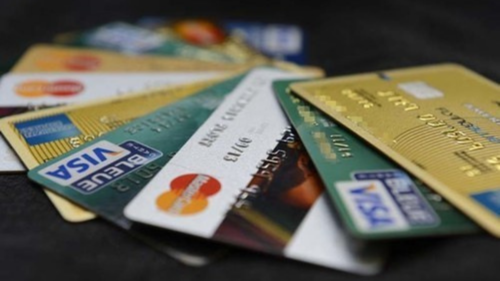KARACHI: Credit cards remain out of reach for most Pakistanis even though plastic cards of other kinds continue to gain a firm foothold in the country of 212 million people.
There were only 1.68m credit cards at the end of March, which constitutes a share of 3.8 per cent in 44.5m payment cards currently in existence.
Debit cards form almost two-thirds of the total while social welfare, pre-paid and ATM-only cards collectively have a share of 32pc, according to data from the State Bank of Pakistan (SBP).
“Somehow, credit card acquisition has been a challenge for the banking industry,” said Muhammad Anas, head of consumer banking at United Bank Ltd.
The total number of credit cards has registered no change over the last decade. But its share in the pie has dropped from 15pc to 4pc, thanks to a disproportionate rise in the number of debit cards, which grew at an annualised rate of 12.1pc since 2009-10.
“Auto and personal loans are need-based products with a natural growth path. That’s the reason credit cards’ receivables are much lower compared with auto and personal loan products,” he added.
Outstanding credit card loans amounted to Rs55 billion or just 7.8pc of Rs708bn of total consumer financing at the end of June.
On a year-on-year basis, credit card loans have increased by almost 28pc
On a year-on-year basis, however, credit card loans increased almost 28pc — a bout of growth that Mr Anas attributes to the regulatory push aimed at promoting digitisation of the economy. “The SBP has incentivised the acceptance side. That’s the reason there’s been major improvement in card usage,” he said.
According to Mr Anas, the main reasons for the poor uptake of credit cards are an aversion to documentation and a lack of awareness.
“Ours is a cash-based economy. But banks must establish and validate the sources of income of their clients for lending products,” he said.
As for the second reason, he said a lot of misgivings exist about credit card charges. Foremost among them is the common belief that the holders of credit cards have to pay an interest rate of up to 45pc. But that’s true only if someone fails to pay their bill by the due date, he said.
Similarly, annual fees also deter many people from applying for a credit card, he said. The annual charge hovers around Rs3,000-5,000 in the case of a vanilla credit card, although it gets waived altogether if the customer spends a certain amount within a specified time period. “You don’t get to pay any charge if you know how the product works,” he said.
Another reason for the low demand for credit cards is that a large number of people believe using credit cards is against Shariah.
This perception was echoed by the CEO of an Islamic bank who told Dawn Islamic scholars have a “divided opinion” on the issue. “Although a few lenders are offering Shariah-compliant credit cards in Pakistan, I have serious doubts about the authenticity of the product,” he said, requesting that he not be named given the sensitivity of the issue.
According to Zaigham Sheriff, general manager of personal banking at Standard Chartered Pakistan, a shift in the perception about credit cards is taking place, thanks in part to the “availability of Shariah-compliant cards”.
The Islamic window of Standard Chartered offers Shariah-compliant credit cards. He didn’t state the specifics of the bank’s share in the credit cards market though.
The presence of interchange charge — a fee that the merchant pays to the card-issuing bank on every single transaction — also discourages businesses from accepting credit cards. Less than a couple of percentage points, it is usually higher for credit cards than debit cards.
Speaking to Dawn, a self-described “compulsive credit card applicant” said four banks have turned down his four credit card applications for four different reasons.
The first time a bank representative told him his monthly salary of Rs70,000 was too low to qualify for a credit card. The second time the bank objected to the breakdown on his salary slip that showed his take-home amount was only half of the “real” salary.
The third time the bank noticed he was “technically” employed by a contractor, and not the reputed company that he actually worked for. The fourth time, a bank representative blamed a poor report from the Electronic Credit Information Bureau for the rejection of his application.
“It’s difficult to get a loan against collateral in this country. What gives you the idea that banks will happily extend unsecured credit card loans?” said a banking sector analyst.
“The uptake for credit cards is low because bankers are lazy. They don’t have to lift a finger to issue debit cards though, and that’s why they’re commonplace.”
Published in Dawn, August 19th, 2021














































